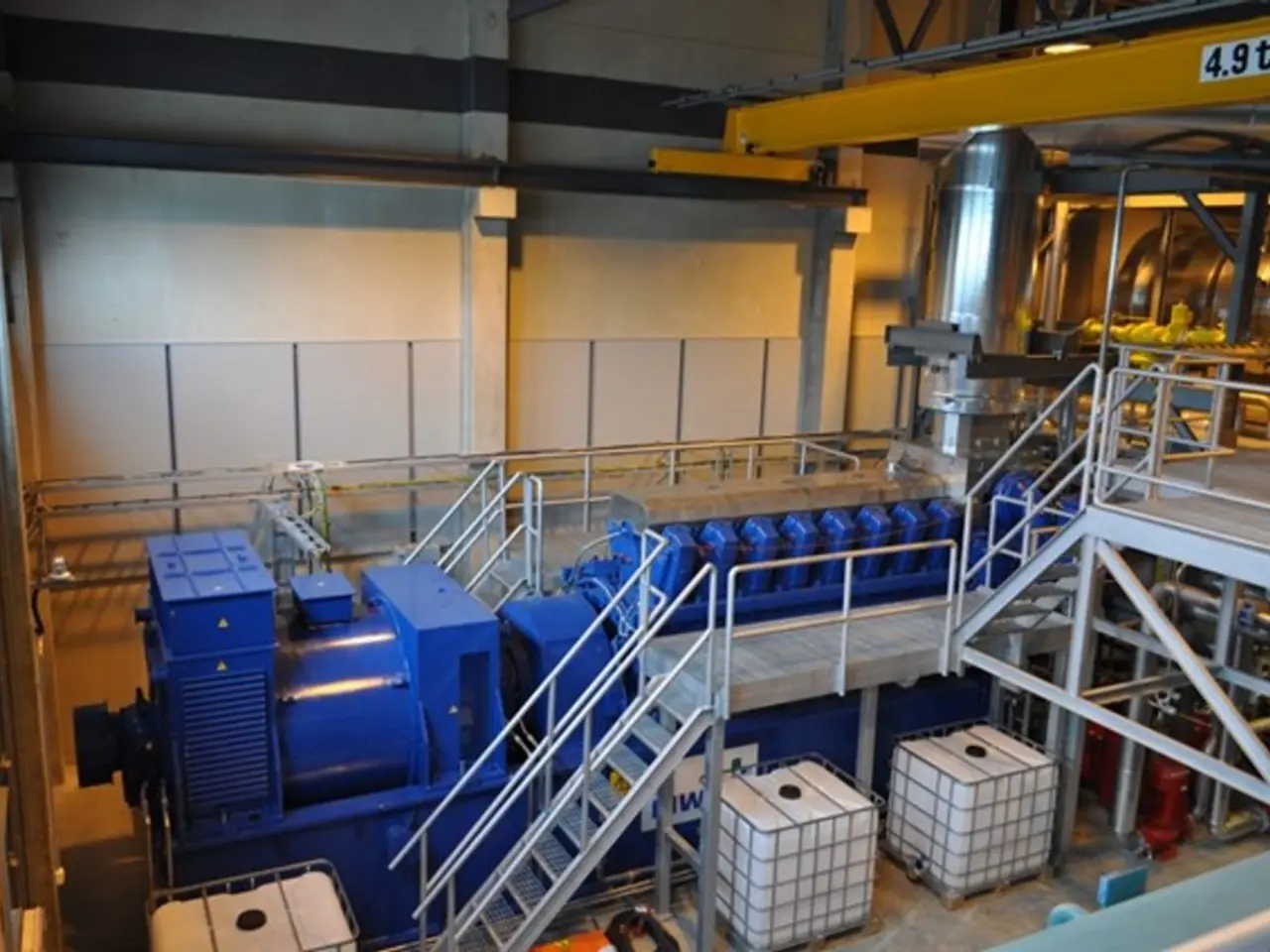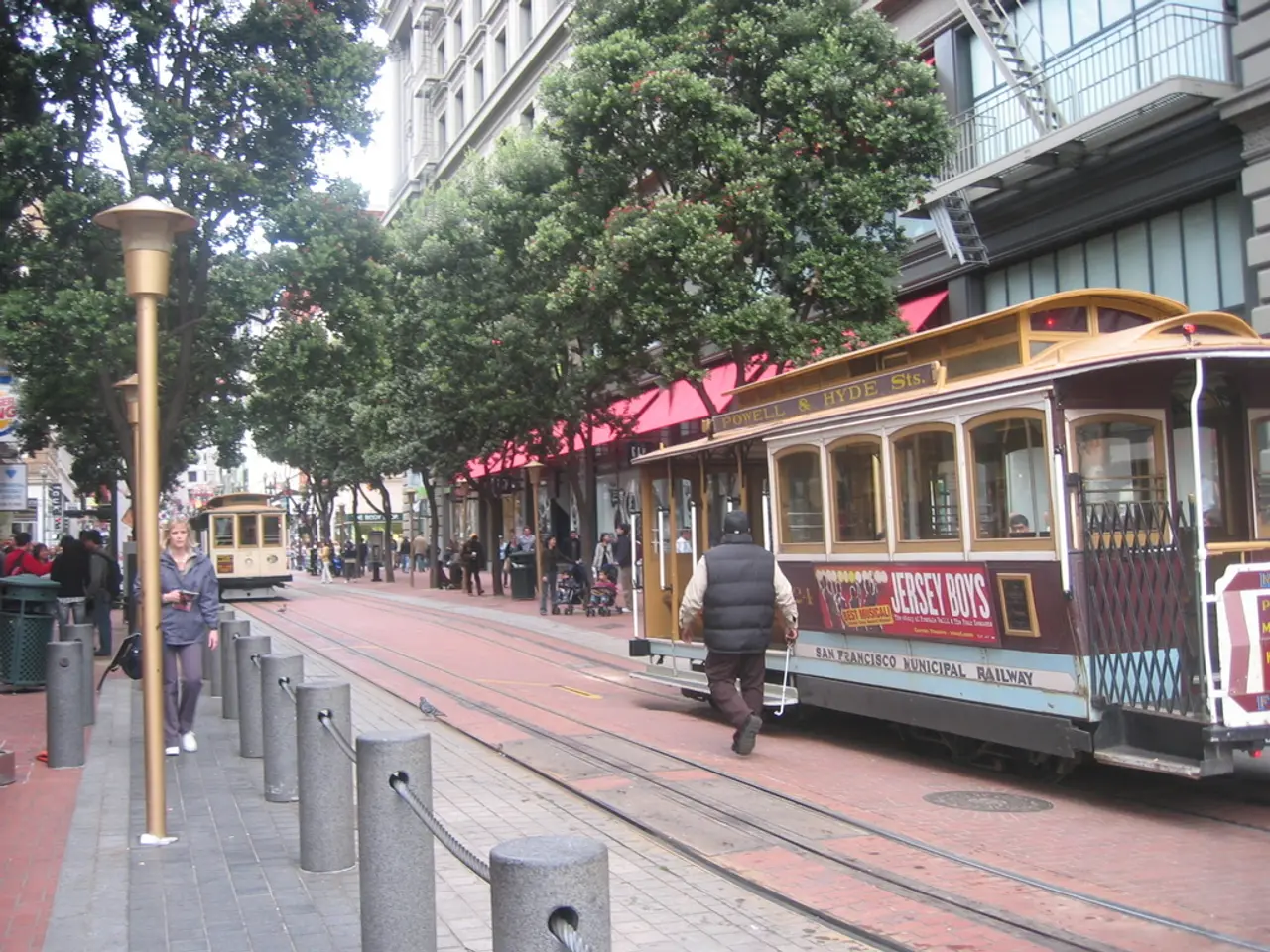Advocates for a Decrease in GST to 5% for Handloom and Handicraft Products in J-K: Piyush Goyal
In a significant move aimed at revitalising the handloom and handicraft sectors in Jammu and Kashmir, Union Commerce and Industry Minister Piyush Goyal has proposed a reduction in the Goods and Services Tax (GST) rate from the current 12% to 5%.
Goyal made this announcement at the FTII: Traders Conclave - 2025 in Srinagar, stating that he would recommend this reduction to the Finance Ministry after receiving a formal application from stakeholders. This move is expected to provide much-needed relief and boost the local industry, helping to promote traditional crafts such as pashmina shawls, handlooms, and horticulture items.
During his visit, Goyal also met with representatives of the Jammu-Kashmir Fruits and Vegetable Processing and Integrated Cold Chain Association (JKPICCA) and the Kashmir Chamber of Commerce and Industry. Discussions centred around empowering local industries, accelerating economic development, and creating a favourable environment for business. Measures to enhance the competitiveness of Micro, Small, and Medium Enterprises (MSMEs), improve Ease of Doing Business, and connect them to the national supply chain were also discussed.
Goyal emphasised the importance of innovation and research in supporting those shifting from traditional trades to entrepreneurship. To this end, a Centre of Excellence focused on storage technology, cold chain infrastructure, and encouraging startups and new talent is being discussed. The Centre will also collaborate with the Indian Institute of Packaging on a project focused on quality packaging and design.
In addition, a Centre of Excellence for Packaging and Design is soon to be established in Jammu and Kashmir. This centre will provide local producers with the tools and resources they need to create eye-catching and sustainable packaging for their products, helping them to compete on a national and international level.
Goyal also assured discussions with NTPC and the Solar Energy Corporation to establish a solar lighting or power generation facility in the region. This would help producers export their products as green products, further boosting their competitiveness.
Strategies to sustain industrial development in the cold chain and agro-processing sectors were also discussed. These sectors are crucial for strengthening J&K's agricultural economy and boosting exports, and the proposed measures aim to support their growth and development.
With these initiatives, the Union Commerce and Industry Minister aims to foster a thriving and sustainable local economy in Jammu and Kashmir, while also preserving and promoting its rich cultural heritage through the handloom and handicraft sectors.
- The proposed GST rate reduction by Piyush Goyal, the Union Commerce and Industry Minister, to 5% from the current 12% for the handloom and handicraft sectors in Jammu and Kashmir aims to stimulate local businesses and traditional crafts such as pashmina shawls and horticulture items.
- During the FTII: Traders Conclave - 2025 in Srinagar, Goyal discussed empowering local industries, accelerating economic development, and creating a favourable environment for business with the Jammu-Kashmir Fruits and Vegetable Processing and Integrated Cold Chain Association (JKPICCA) and the Kashmir Chamber of Commerce and Industry.
- Goyal emphasised the importance of innovation and research in supporting entrepreneurs and is discussing the establishment of a Centre of Excellence focused on storage technology, cold chain infrastructure, and encourage startups and new talent in Jammu and Kashmir.
- The Centre of Excellence for Packaging and Design soon to be established in Jammu and Kashmir will provide local producers with the tools and resources they need to create eye-catching, sustainable packaging for their products, enhancing their competitiveness on a national and international level.
- Goyal also expressed plans to discuss with NTPC and the Solar Energy Corporation to establish a solar lighting or power generation facility in the region, allowing local producers to export their products as green products, further boosting their competitiveness in the environment-conscious business sector.








